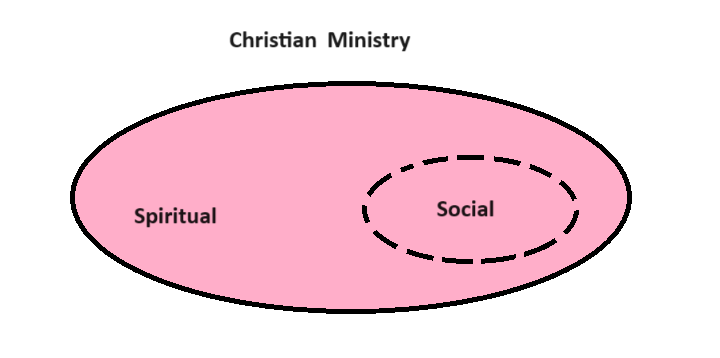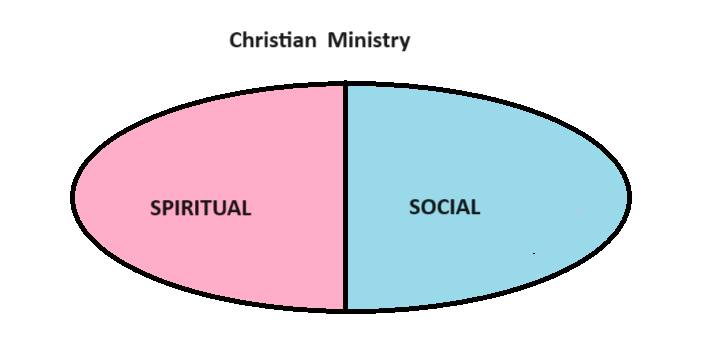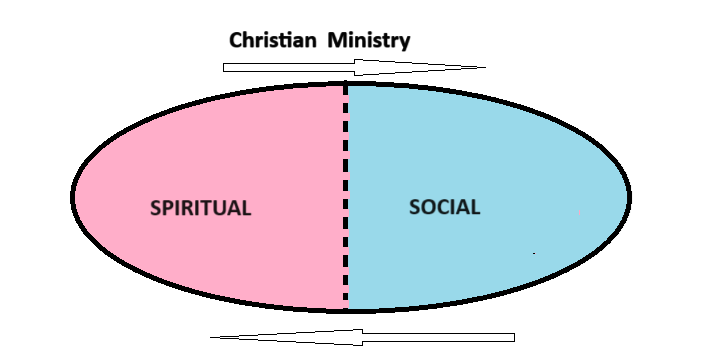If you haven’t yet, please read PART ONE first.
While tensions rose between more theologically liberal and pluralistic views of missions with more conservative and exclusive views, things hit a bit of a boiling point in the 1960s.
With the IMC becoming incorporated into the World Council of Churches, there was a rapid move away from evangelism or proselytism, and towards a sort of “presence” mission that identifies what is God or godly in a culture, rather than seeking to preach the gospel message of Christ.
Evangelicals such as Billy Graham, Peter Wagner, Ralph Winter, Donald McGavran, and others supported a mission organization like the IMC (or what was the IMC) but with a conservative focus on missions as proclamation. This, however, did bring into question the role of social ministry in missions. I have been told that Donald McGavran supported social ministry in missions— but at least up to now, I haven’t really seen evidence of this. Certainly, such a message did not seem to stand out in a time when many of the conservative missionaries and missiologists were pushing to identify missions in terms of spiritual ministry only. Some, like Ralph Winter, seemed to be seeking to take it even further, limiting the term missionary to those who were working where the gospel had not been heard or at least where the church is not firmly established.
I don’t think any of them would say that they were against social ministry per se (except those that used the dubious argument that “Christ was returning any day” as an argument that quick superficial projects were the way to go in missions. Most I think were like the people in my previous post who thought that good things would happen naturally (or supernaturally) to people and societies if they transformed by the gospel. As I noted before, however, if people are taught that A is important and B is not, it is likely that most will practice A and not B, and train up the next generation that A is important and not B. This view was shown in my previous post as—

The group that did the most, I think, to undermine this view were often the conservative missiological side of the Church of England. The Church of England was part of the World Council of Churches, and so these missiologists (like John Stott, Stephen Neill, Leslie Newbigin, and Max Warren) had one foot in the WCC and one in the conservative side that would eventually become the Lausanne Movement. (There were others like Ronald Sider who were not Anglican, were key in this as well.)
John Stott pushed strenuously for a more holistic view of missions. He used the analogy of the two blades of a pair of scissors or two wings on an aircraft. Ministry “cuts” or “flies” with both. It is foolish to say which is needed— both are needed. Perhaps one could show this as follows:

With this, Christian ministry is seen as BOTH spiritual and social. One is incomplete without the other.
But even if one accepts this, that still leaves an important question— which is more important, or which should be given priority. This, in my mind at least, is the tougher question. One quick answer is that it depends on what specific ministry one believes called to do. So if one believes one is called to be involved in community development, then the social side takes priority, while one involved in church planting may give spiritual ministry priority.
But is that a “cop out”? Many groups have sought to be vigorously spiritual AND social and gradually drifted towards one side of the other. Should that be accepted as normal?
Up to this point, although I have been giving my own opinion… I feel it stands up well to scrutiny. Explicitly spiritual ministry that is only implicitly social may be fine, but it is still at some level sub-biblical. The same could be said of the opposite, explicitly social ministry that is only implicitly spiritual. But where do we go from here? I feel that view can hold its own against those who hold one of the two alternative views.
For me, however, I do have a perspective on priority. I do believe that as a missionary, priority should be recognized, on some level at least, to spiritual ministry— or perhaps better stated, spiritual transformation. I believe this to be true based on a simple truth. Spiritual ministry that lacks a social component IS CHRISTIAN MINISTRY— even if it is in a sense sub-biblical. Social ministry that lacks a spiritual component, while in many ways good (it is always nice to be nice), may not necessarily be Christian ministry.
But if spiritual ministry has priority… it is priority with quotation marks around it. After all… spiritual transformation rarely occurs only through preaching, teaching, or arguing. People commonly can identify God’s love only if it is demonstrated to them through acts of kindness. Jesus healed the sick and cast out demons for (at least) two reasons— compassion for the people, and as a sign of his Messiahship. Both of these were key to spiritual transformation. Is is even correct to say that meeting their physical or psychoemotional needs is not a spiritual ministry. A little exercise I have given my students in the past was to read Luke 10 and the instructions given for the disciples to go out two-by-two to minister. I asked them to decide whether each of these instructions had a spiritual or a social purpose. In most cases, it is not clear whether it is one or the other or both. For example, was the instruction not to bring money with them a spiritual instruction… ensuring that they place their trust in God? Or maybe it was a social instruction… forcing them to interact with the people as a guest cared for by their hosts?
I do believe that spiritual officially has priority over social… but social is so important to the carrying out of spiritual ministry that it is somewhat problematic to speak of priority. Additionally, there is no clear line between social and spiritual. Finally, the two support each other— social supports spiritual ministry and spiritual supports social— so it is best not to think of them as wholly separate things. Perhaps it could bw shown as follows:

I guess as one final thought— if a social ministry is seen to slow down spiritual ministry, I would suggest that the spiritual ministry is meant to go slower. As I noted in my previous post, I don’t see speed as being a virtue in Christian ministry. Meeting physical and other social needs is a clear Biblically-identified virtue.

Pingback: Christian Ministry: Priority without Duality. Part One – MMM — Mission Musings